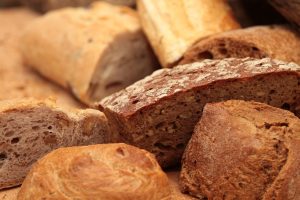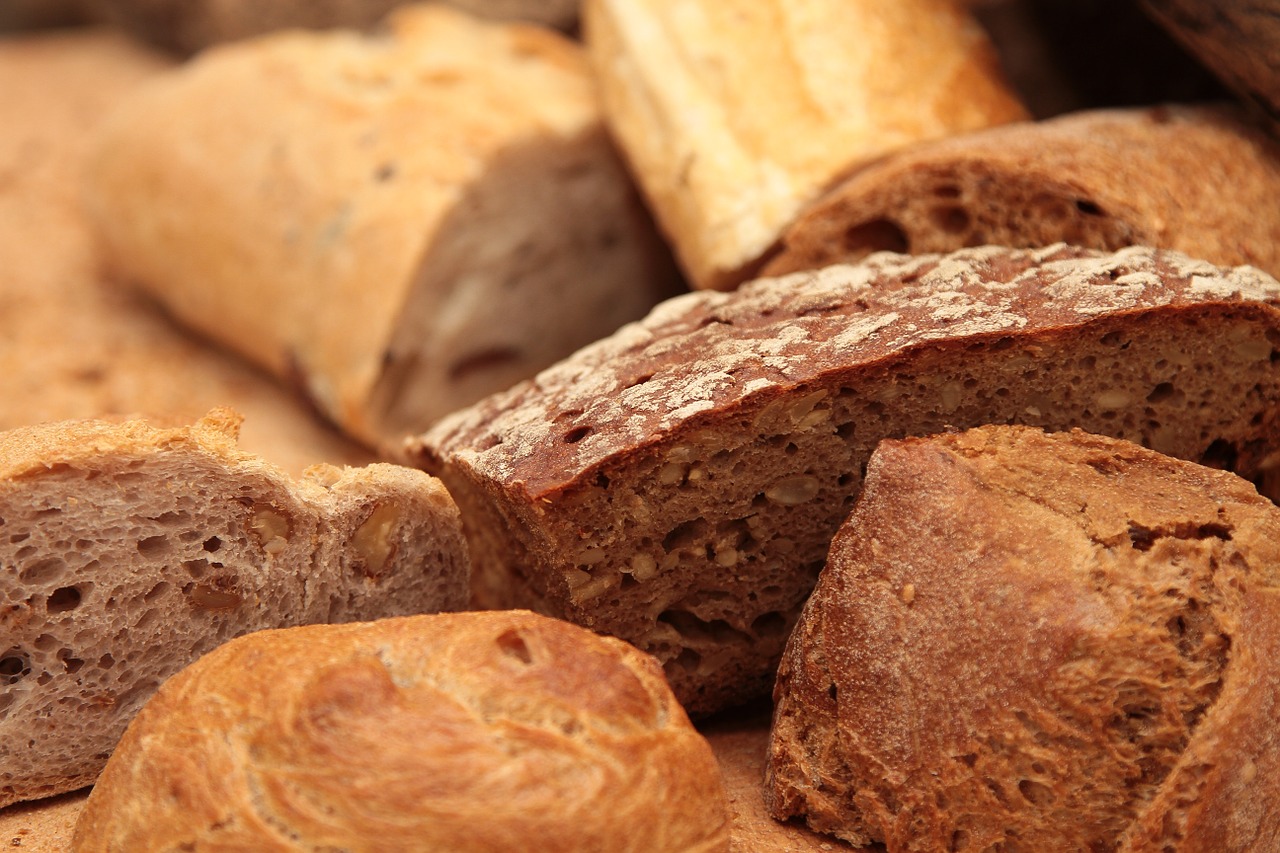
Sponsored by
Irving and Arline Katz
on the yahrzeit of
grandmother Henya Rachel bat Pinchas (Spalter) a”h
Micheline and David Peller
in memory of his parents
Hinda bat Yisroel Yechiel a”h and
Efraim Fishel ben Avraham a”h
Manny and Loretta Sadwin
on the yahrzeit of her mother
Henya bat Aryeh Leib Halevi a”h
At the end of this week’s Parashah, Bnei Yisrael are attacked by Amalek. The Torah relates that Moshe Rabbeinu climbed a nearby hill and held his arms in the air to inspire Bnei Yisrael to look Heavenward. The Torah continues (17:12), “Moshe’s hands grew heavy, so they took a stone and put it under him and he sat on it . . .”
Midrash Tanna D’vei Eliyahu Zuta (ch.1) asks: Did Moshe not have a pillow or a comfortable chair on which to sit? The Midrash answers: Moshe said, “Since Bnei Yisrael are in pain, I will share in their pain.”
The Midrash elaborates: One who does not share in the pain of the Tzibbur / congregation, will not merit to see its consolation. Lest a person say, “I will shut myself in my house and eat and drink, and Shalom alei nafshi / all will be well with me,” about him the verse says (Yeshayah 22:13), “Behold! There is joy and gladness, slaying of cattle and slaughtering of sheep, eating meat and drinking wine . . .” What does the prophet say in Hashem’s name immediately after that? He says (22:14), “This sin will never be atoned for you until you die.” If a person will say, “Who will testify against me?” The stones and beams of his house will testify against him. Other say that the two angels that accompany every person will testify against him. Still others say that a person’s own Neshamah / soul will testify against him.
On the other hand, says the Midrash, one who does share in the Tzibbur’s pain will merit to see its consolation.
********
“Then Moshe and Bnei Yisrael sang . . .” (15:1)
Midrash Mechilta states: Even nursing babies stopped feeding and sang along. [Until here from the Midrash]
R’ Yitzchak Arieli z”l (1896-1974; Mashgiach of Yeshivat Merkaz Harav; author of Enayim La’mishpat) explains: Our Sages teach in several Midrashim that there are ten different levels of Shirah / song. The highest level song will be sung at the time of the future redemption.
What defined the song sung after the splitting of the Yam Suf? R’ Arieli answers: This song resulted from a spiritual experience so powerful that all people–great and small–sang the same song, word-for-word. “Moshe and Bnei Yisrael sang,” says the verse, and Midrash Mechilta comments: “Moshe was equivalent to all of Yisrael, and all of Yisrael was equivalent to Moshe.” This song emanated from the soul, not from the intellect. Thus, even babies “sang.” (Haggadah Shel Pesach Shirat Ha’geulah p.105)
From the same work:
“Who is like You Ba’elim / among the heavenly powers, Hashem!”
The Gemara (Gittin 56b) reads this verse homiletically: “Who is like You Ba’ilmim / among those who are mute, Hashem!”–referring to the fact that, when the Roman Emperor Titus desecrated the Bet Hamikdash, Hashem remained silent and bided His time before punishing him. [Until here from the Gemara]
Why is this alluded to in the Song at the Sea? R’ Arieli explains: During the long exile in Egypt, Bnei Yisrael wondered whether Hashem was, G-d forbid, too weak to save them. But, after Hashem’s crushing punishment of the Egyptians at the Sea, Bnei Yisrael understood that that was not case. Sometimes, not reacting is not a sign of weakness; rather, it is the greatest sign of strength! (Ibid.)
A related thought:
R’ Avraham Eliyahu Kaplan z”l (1890-1924; Rosh Yeshiva of the Hildesheimer Rabbinical Seminary in Berlin, Germany) writes: We read in Parashat Toldot that Yitzchak dug wells and the Plishtim fought with him over them. The Torah relates (Bereishit 26:21), “Then they dug another well, and they quarreled over that also; so he called its name ‘Sitnah’ / ‘hatred.” It seems odd, writes R’ Kaplan, that Yitzchak would bother giving a name to a well he had decided to abandon! However, Yitzchak was making a statement: “The fact that the Plishtim are stealing my wells is nothing but hatred. I will rise above their hatred and walk away.” That was Yitzchak’s strength. What was the end result? Avimelech, king of the Plishtim, came to Yitzchak and acknowledged (26:28), “We have indeed seen that Hashem has been with you.” (B’ikvot Ha’yir’ah p.126)
********
“Is Hashem among us or Ayin / not?” (17:7)
R’ Shlomo Eliasof z”l (1841-1926; a leading early 20th century kabbalist; grandfather of R’ Yosef Shalom Elyashiv z”l) explains Bnei Yisrael’s question: Midrash Shir Ha’shirim Rabbah relates that when Moshe Rabbeinu told Bnei Yisrael, “In this month you will be redeemed,” they responded, “How can we be redeemed, when all of Egypt is sullied by our own Avodah Zarah / idolatry?!” Moshe Rabbeinu responded, “Hashem wishes to redeem you, and He will not look at your Avodah Zarah.” [Until here from the Midrash]
R’ Eliasof continues: The Midrash is teaching that Hashem redeemed Bnei Yisrael using His Attribute of Patience, such that He did not take into account whether they were deserving or not. This Attribute of Hashem is referred to as “Ayin” (literally, “absence,” alluding to the absence of merit). This is the Attribute with which Hashem brought about the Exodus, and with which He split the Sea. Bnei Yisrael understood, however, that Hashem would not relate to them with this Attribute forever; at some point, He would begin to judge them based on their merit. This, concludes R’ Eliasof, was Bnei Yisrael’s constant fear, and what they were expressing when they asked, “Is Hashem among us or Ayin?” (Sha’arei Leshem Shevo Va’achlamah p.405)
********
Bitachon
This year–a Shemittah year–we will iy”H devote this space to discussing the related subject of Bitachon / placing one’s trust in Hashem.
The Gemara (Yoma 76a) relates that R’ Shimon bar Yochai’s students asked him: Why didn’t Hashem give Bnei Yisrael an annual supply of Mahn once a year? He answered them with a parable: A father gave his son an allowance for the whole year, and the son never visited the father. The father began giving his son his allowance daily, and the son visited every day. So, too, Hashem gave Bnei Yisrael their sustenance daily–as described in our Parashah–so that they would direct their hearts to Him.
R’ Yitzchak Blazer z”l (1837-1907; one of the three primary disciples of R’ Yisrael Salanter z”l, founder of the Mussar movement; rabbi of St. Petersburg, Russia, because of which he is known as R’ Itzele Peterburger) writes: At first glance, this is difficult to understand. We read in the Tochachah / rebuke and curses (Devarim 28:66), “Your life will hang in the balance, and you will be frightened night and day, and you will not be sure of your livelihood.” The Gemara (Menachot 103b) explains: “Your life will hang in the balance” refers to someone who is obliged to buy grain annually; “You will be frightened night and day” refers to someone who purchases grain weekly; “You will not be sure of your livelihood” refers to someone who must rely on a baker for daily bread. [Until here from the Gemara.] It would seem, writes R’ Itzele, that each phrase is a greater curse than the preceding one, for it entails more frequent worry. It emerges, therefore, that it was a curse that Bnei Yisrael in the desert received Mahn daily. Can that be correct?
R’ Itzele answers: The Gemara (Sotah 48b) teaches, “One who has bread in his basket and says, ‘What will I eat tomorrow?’ is of little faith.” [Until here from the Gemara.] One who has great faith does not worry at all about what he will eat tomorrow; he places his trust in Hashem who gives sustenance to all creatures. A person whose Emunah / faith is complete does not worry even if Hashem sends him his sustenance daily, and even if he does not know where tomorrow’s bread will come from. To such a person, this situation is not a curse, since he trusts in Hashem and is not worried.
R’ Itzele continues: In contrast, one who has little faith worries about what he will eat tomorrow. If earning his livelihood involves seeking his bread daily, and he never knows what he will eat the next day, then he cannot remove his worry from his heart–especially if he has children. For him, this situation is a curse.
R’ Itzele concludes: The Tochachah is addressed to a generation that does not observe the Mitzvot. Obviously, that is a generation of little faith. In contrast, when Bnei Yisrael first received the Mahn, it was immediately after the Splitting of the Sea, about which we read (14:31), “They had faith in Hashem.” To them, receiving bread daily was a sign of Hashem’s desire for closeness, as Rabbi Shimon bar Yochai teaches, not a curse. (Kochvei Ohr No.11)


